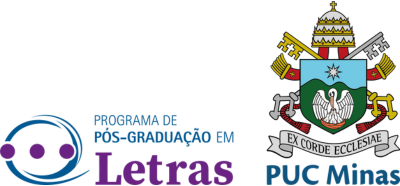Temporalizações e temporalidades: sobre o tempo no acontecimento do dizer
DOI:
https://doi.org/10.5752/P.2358-3428.2022v26n57p349-374Palavras-chave:
Pandemia, Temporalização, Semântica da Enunciação, Formação NominalResumo
O presente trabalho apresenta os modos como mobilizamos sentidos sobre o tempo nos acontecimentos de dizeres típicos da pandemia do SARS-COV-2. Destacamos formações, como “novo normal” e “dia D” e “hora H”, que caracterizam o referencial histórico da pandemia, pelo olhar da Semântica da Enunciação. Propomos o foco à temporalidade do dizer a que se refere Guimarães (2002, 2018), uma vez que o acontecimento temporaliza. Nesse ponto, discutimos uma proposta de olhar de separação didática dos sentidos que construímos sobre o tempo, realçando como a temporalidade do dizer acontece e o modo como temporalizações reconstroem e redefinem sentidos, colocando a nossa visão às significações e como elas se (re)moldam, produzindo os acontecimentos do dizer sobre/ na pandemia, uma vez que os sujeitos são tomados pela linguagem na historicidade e constituem o Logos. Desse modo, observamos como os discursos se dão a partir de referenciais, moldando o mundo pela linguagem que ora se delineia nas emergências.
Downloads
Referências
BENVENISTE, Émile. Problemas de linguística geral. Tradução de Maria da Glória Novak. São Paulo: Editora Nacional, Editora da Universidade de São Paulo, 1976.
BENVENISTE, Émile. Problemas de linguística geral II. 2. ed. Campinas: Pontes Editores, 1989.
CARVALHO, Gabriele C.; BIAVATI, Nádia D. F. Temporalizações na/da pandemia: a produção de sentidos como um marco linguístico e histórico. Linguasagem, v. 40, p. 227-248, 2021. Disponível em: https://www.linguasagem.ufscar.br/index.php/linguasagem/article/view/1385/860. Acesso em 22 out. 2022.
DIAS, Luiz Francisco. Acontecimento Enunciativo e Formação Sintática. Revista Línguas e Instrumentos Linguísticos, Campinas, n. 35, p. 99-138, jan./jun. 2015a.
DIAS, Luiz Francisco. Língua e nacionalidade no Brasil na primeira metade do século XX. Polifonia, Cuiabá, v. 22, n. 31, p. 11-31, jan./jul. 2015b.
DIAS, Luiz Francisco. Enunciação e relações linguísticas. Campinas, SP: Pontes Editora, 2018.
FOUCAULT, Michel. A ordem do discurso. Tradução de Laura Fraga de Almeida Sampaio. 6. ed. São Paulo: Edições Loyola, 2000.
FOUCAULT, Michel. A arqueologia do saber. Tradução de Luiz Felipe Baeta Neves. 8. ed. Rio de Janeiro: Forense Universitária, 2019.
GUIMARÃES, Eduardo. Semântica do acontecimento. Campinas: Pontes, 2002.
GUIMARÃES, Eduardo. Semântica, Enunciação e Sentido. Campinas: Pontes, 2018.
SILVA, J. J.; DALMASCHIO, L. O meme sob uma perspectiva semântico-enunciativa. Entretextos, v. 21, n. 1, p. 51-88, 2021. DOI: http://dx.doi.org/10.5433/1519-5392.2021v21n1p51. Acesso em 22 out. 2022.
Downloads
Publicado
Como Citar
Edição
Seção
Licença
O envio de qualquer colaboração implica, automaticamente, a cessão integral dos direitos autorais à PUC Minas. Solicita-se aos autores assegurarem:
- a inexistência de conflito de interesses (relações entre autores, empresas/instituições ou indivíduos com interesse no tema abordado pelo artigo), e
- órgãos ou instituições financiadoras da pesquisa que deu origem ao artigo.
- todos os trabalhos submetidos estarão automaticamente inscritos sob uma licença creative commons do tipo "by-nc-nd/4.0".


 Português
Português English
English Español
Español
 Italiano
Italiano






